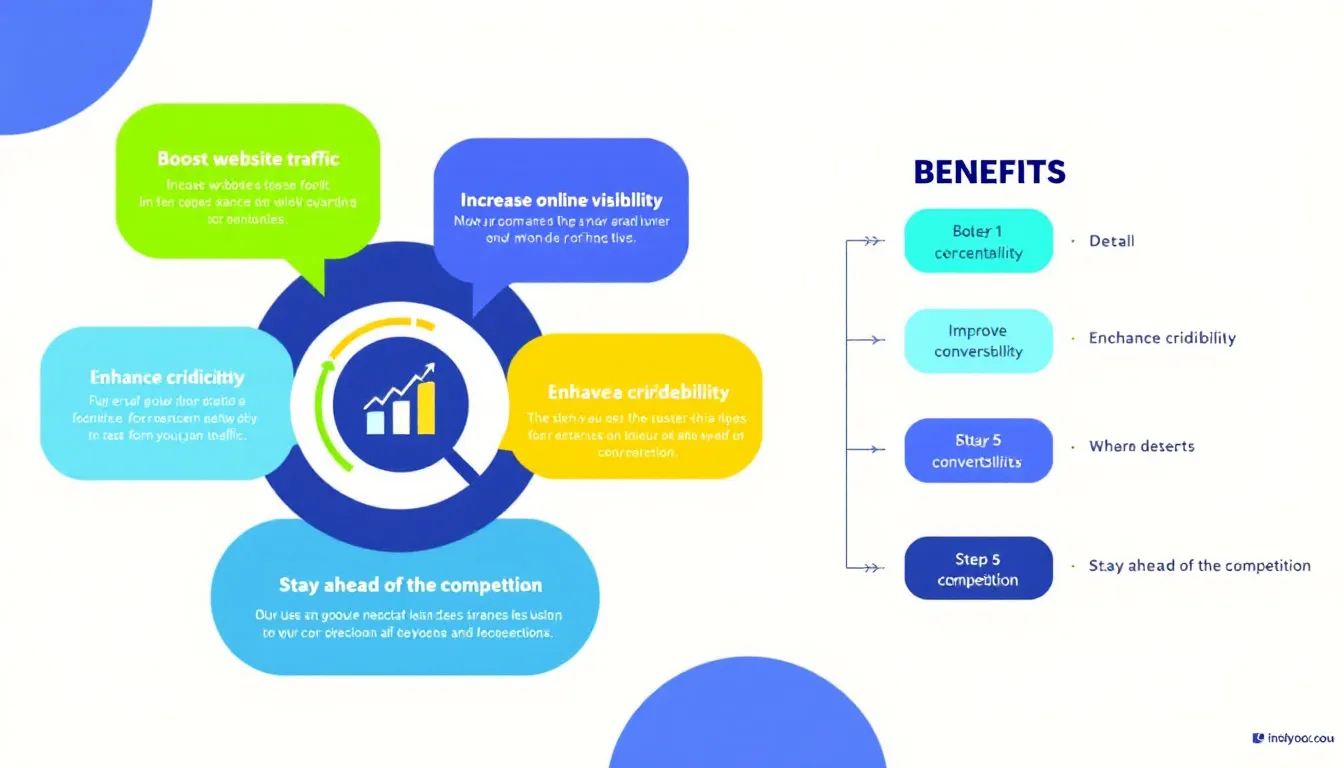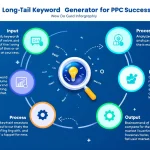SEO Keyword Research Tool
Is this tool helpful?
How to Use the SEO Keyword Research Tool Effectively
This SEO keyword gap analysis tool helps you find content gaps and keyword opportunities to boost your search engine rankings. Follow these simple steps to get started:
- Enter the main topic or niche: Fill in the primary subject area related to your business or content. For example, enter “Indoor Plant Care” or “Mobile App Development.”
- Provide your website URL: Type the full URL of the site you want to analyze. Sample inputs could be https://www.greenthumbblog.com or https://www.techstartuphub.io.
- Click “Analyze SEO Keywords”: Submit your inputs to initiate the keyword research and analysis process.
- Review the keyword analysis results: The tool generates a detailed report showcasing content gaps, recommended keywords, and opportunities for enhancing your SEO content strategy.
- Save and apply insights: Use the output to focus your content creation and optimization efforts for improved visibility and higher search rankings.
What Is the SEO Keyword Research Tool and Why It Matters
This SEO keyword gap analysis tool examines your website alongside your chosen niche to identify areas where your content can perform better. It helps you uncover untapped keyword opportunities and optimize your content for search engines. Using this tool, you gain insights that improve your online presence, attract targeted visitors, and increase organic traffic.
Key benefits include:
- Finding long-tail keywords relevant to your niche
- Spotting content gaps to expand your topic coverage
- Analyzing competitor keyword strategies for competitive advantage
- Optimizing your content strategy based on user intent and trends
Practical Uses: How This Tool Enhances Your SEO Strategy
This tool serves as your SEO assistant by delivering actionable keyword insights and content recommendations. Here’s how you can use it in real-world scenarios:
1. Discover New Content Opportunities
Identify keyword gaps where your website lacks coverage. You can then produce targeted articles or pages that fill those gaps, attracting new audiences and increasing your website’s relevance.
2. Align Your Content with User Intent
The tool helps you understand the search intent behind keywords—whether informational, transactional, or navigational—so you create content that matches what users are actively looking for.
3. Benchmark Against Competitors
By comparing your site to competitors, you spot where they rank for valuable keywords you’re missing. This insight allows you to capitalize on missed opportunities and improve your market position.
4. Stay Updated with Emerging Trends
SEO is constantly evolving. The tool highlights trending keywords and topics within your niche, helping you keep your content fresh and relevant to current search behaviors.
Core Features and Insights Delivered by the Tool
- Long-tail Keyword Suggestions: Target specific phrases that attract highly interested visitors and reduce competition.
- Content Gap Identification: Recognize topics your competitors have covered but you haven’t.
- Semantic Keyword Connections: Discover related keywords to improve content depth and relevance.
- Competitor Keyword Analysis: See which keywords drive traffic to rival websites.
- Trending Keyword Alerts: Get data on emerging topics to capture timely search interest.
Examples of Effective SEO Keyword Research
Example 1: Health and Wellness Blog
- Identified specific long-tail keywords like “holistic stress relief techniques” and “best sleep supplements for adults.”
- Found a content gap around mental wellness during remote work.
- Created detailed guides addressing these gaps, increasing organic search traffic by 35% in three months.
Example 2: Local Coffee Shop Website
- Used location-specific keywords such as “espresso bar near downtown” and “best cold brew in [City Name].”
- Optimized menu pages and blog posts for these keywords.
- Improved local search visibility, resulting in a 45% boost in foot traffic.
Example 3: B2B Software Provider
- Discovered competitor gaps with keywords like “cloud-based accounting software for startups.”
- Produced comparison articles targeting these terms.
- Generated a 50% increase in qualified leads over six months.
Frequently Asked Questions
Q1: How often should I perform keyword research?
You should conduct keyword research every 3-6 months to adapt to evolving search trends and uncover new opportunities. More frequent checks help in fast-changing industries.
Q2: Can I target the same keywords on multiple pages?
Avoid using identical keywords across multiple pages because it can cause keyword cannibalization. Instead, diversify with related or long-tail keywords to increase your website’s overall reach.
Q3: Should I focus on high-volume or low-volume keywords?
Use a balanced approach. High-volume keywords bring broader traffic but face stiff competition. Low-volume, niche keywords attract targeted visitors and are easier to rank for.
Q4: How does user intent affect keyword research?
Matching your content to the intent behind search queries improves engagement and ranking. The tool categorizes keywords as informational, transactional, or navigational to help you align your content appropriately.
Q5: How do I measure success from using this tool?
Track metrics such as organic traffic growth, keyword rankings, click-through rates, and conversion rates from your targeted keywords. Regular monitoring lets you adjust your strategy effectively.
Conclusion: Maximize Your SEO with Strategic Keyword Research
Using this SEO keyword research tool regularly lets you identify essential keyword opportunities, fill content gaps, and stay ahead of competitors. By targeting the right keywords based on user intent and current trends, you enhance your website’s visibility and attract the right audience. Consistent keyword research empowers you to build a stronger, more data-driven content strategy that grows your organic traffic and improves your search engine rankings.
Important Disclaimer
The calculations, results, and content provided by our tools are not guaranteed to be accurate, complete, or reliable. Users are responsible for verifying and interpreting the results. Our content and tools may contain errors, biases, or inconsistencies. Do not enter personal data, sensitive information, or personally identifiable information in our web forms or tools. Such data entry violates our terms of service and may result in unauthorized disclosure to third parties. We reserve the right to save inputs and outputs from our tools for the purposes of error debugging, bias identification, and performance improvement. External companies providing AI models used in our tools may also save and process data in accordance with their own policies. By using our tools, you consent to this data collection and processing. We reserve the right to limit the usage of our tools based on current usability factors.







